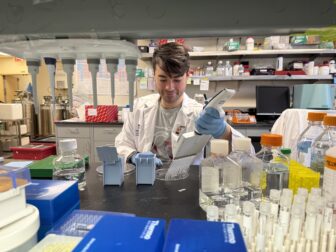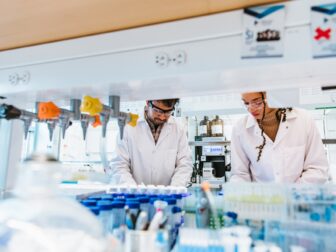Thomas Kuret, MS

GUCY2C Proteins Protect Brain Cells From Parkinson’s Disease
Abstract
Parkinson’s disease is a common brain disorder that makes it hard to move and control muscles, but its exact cause is unclear. Scientists believe a combination of genetic and environmental factors are to blame. New findings also link brain cell damage in PD patients to inflammation caused by misfolded proteins (α-synuclein) or COVID-19 infection. This damage is caused by stressed mitochondria, the energy-producing parts of a cell. When damage accumulates, treatments can manage symptoms but not stop the disease from getting worse. Our project focuses on a protein called GUCY2C, found in brain cells that produce dopamine, a chemical that helps control movement. When activated, this protein protects cells from damage by boosting mitochondrial health. GUCY2C is naturally increased in PD and after COVID, suggesting it’s the brain’s way of protecting itself. We aim to use existing FDA-approved drugs to activate GUCY2C and thereby prevent or reverse brain cell death. This approach could shift how we treat PD, from managing symptoms to slowing or even stopping the disease itself.
Watch a Q&A with Thomas
I am thrilled to be a predoctoral fellow of the PhRMA Foundation. This funding allows us to continue discovering disease modifying drugs for Parkinson’s disease and characterizing novel gut-brain biology, while supporting me as a young scientist.

